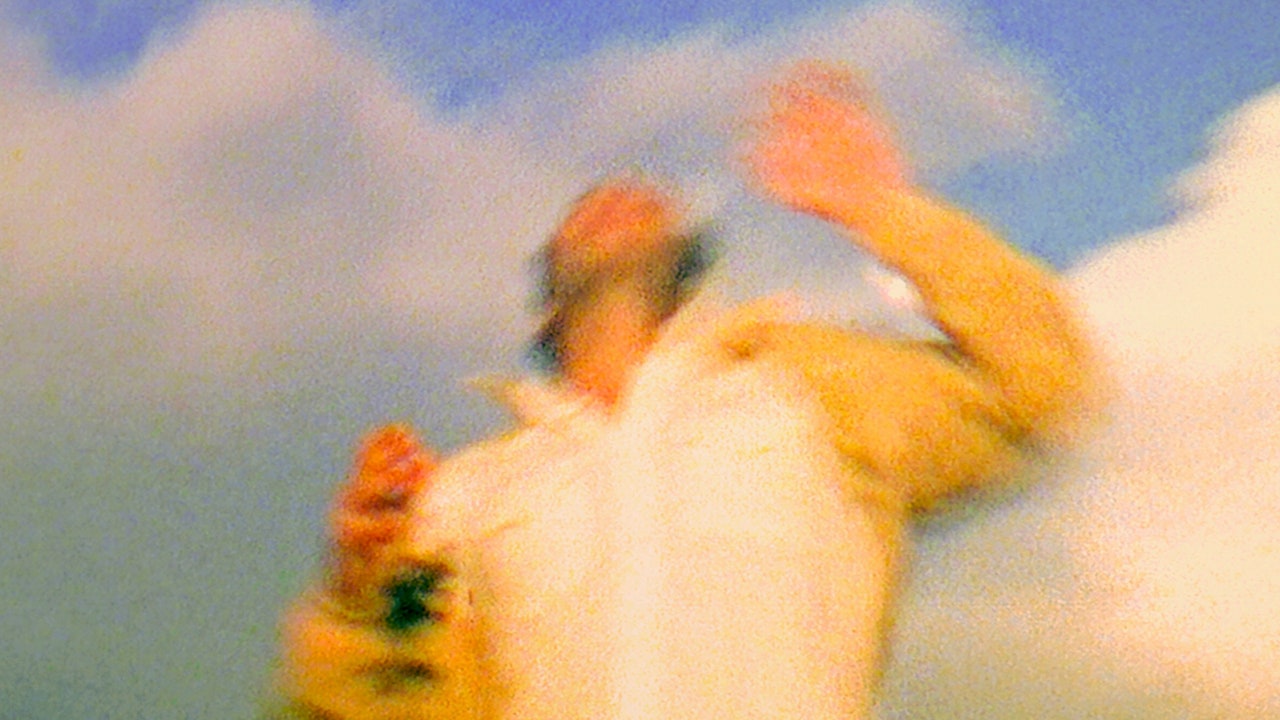So much of the most famous Brazilian music is about either love, Brazil, or a love of Brazil. This isn’t meant to be reductive—Brazilians have a deep sense of pride in their homeland, and they’ve found myriad poetic ways to express it in song. “100% Samba,” the lead single off of Rogê’s Curyman II LP, could easily be construed simply as one such celebration: An ecstatic cuica buzzes alongside Rogê’s acoustic guitar and gigantic bass from BADBADNOTGOOD’s Chester Hansen as Rogê proclaims how samba thrives on the vigor of the Brazilian people who developed and maintained its essence. But the track isn’t just a straightforward declaration of pride; he also acknowledges samba’s roots in Africa and how enslaved people in Brazil then forged its sound. The vibrant, expressive songs on Curyman II return often to this theme: how Brazil’s unique cultural identity is a product of its diverse ethnic populations.
Rogê (née Roger José Cury) got his start in Rio’s spirited Lapa neighborhood, where he was a fixture at samba-centric nightclubs. Here, he met collaborators like The Life Aquatic star Seu Jorge, with whom he released an exceptional EP in 2020, and sambeiro Arlindo Cruz, with whom he would go on to garner a Latin Grammy nomination. He released six other solo albums of music that mixes samba with Música Popular Brasileira (MPB; Brazilian pop music) while living in Rio, earning him the status of a local legend. But like Carioca luminaries Sérgio Mendes and Antônio Carlos Jobim before him, Rogê saw life in Los Angeles as an opportunity to get his samba heard by more than just Brazilians, and moved there in 2019, partly at the behest of Jorge. When Menahan Street Band’s Thomas Brenneck launched his Diamond West label, he made Rogê’s 2023 album, Curyman, its inaugural release, and served as its producer. While the albums’ titles are a play on Rogê’s last name, they’re also a reference to “O Vento” (“The Wind”) by bossa nova founding father Dorival Caymmi, which tells of the wind that propels boats that bring fisherman a lucrative catch of the curimã fish. Rogê ends Curyman covering this song, and begins Curyman II interpolating it. The song’s central metaphor—about the winds of change that can guide or challenge us—powers Rogê’s latest collection as he deepens his focus on sharing authentically Brazilian music with the world, while also tackling Brazil’s history and colonial past.
